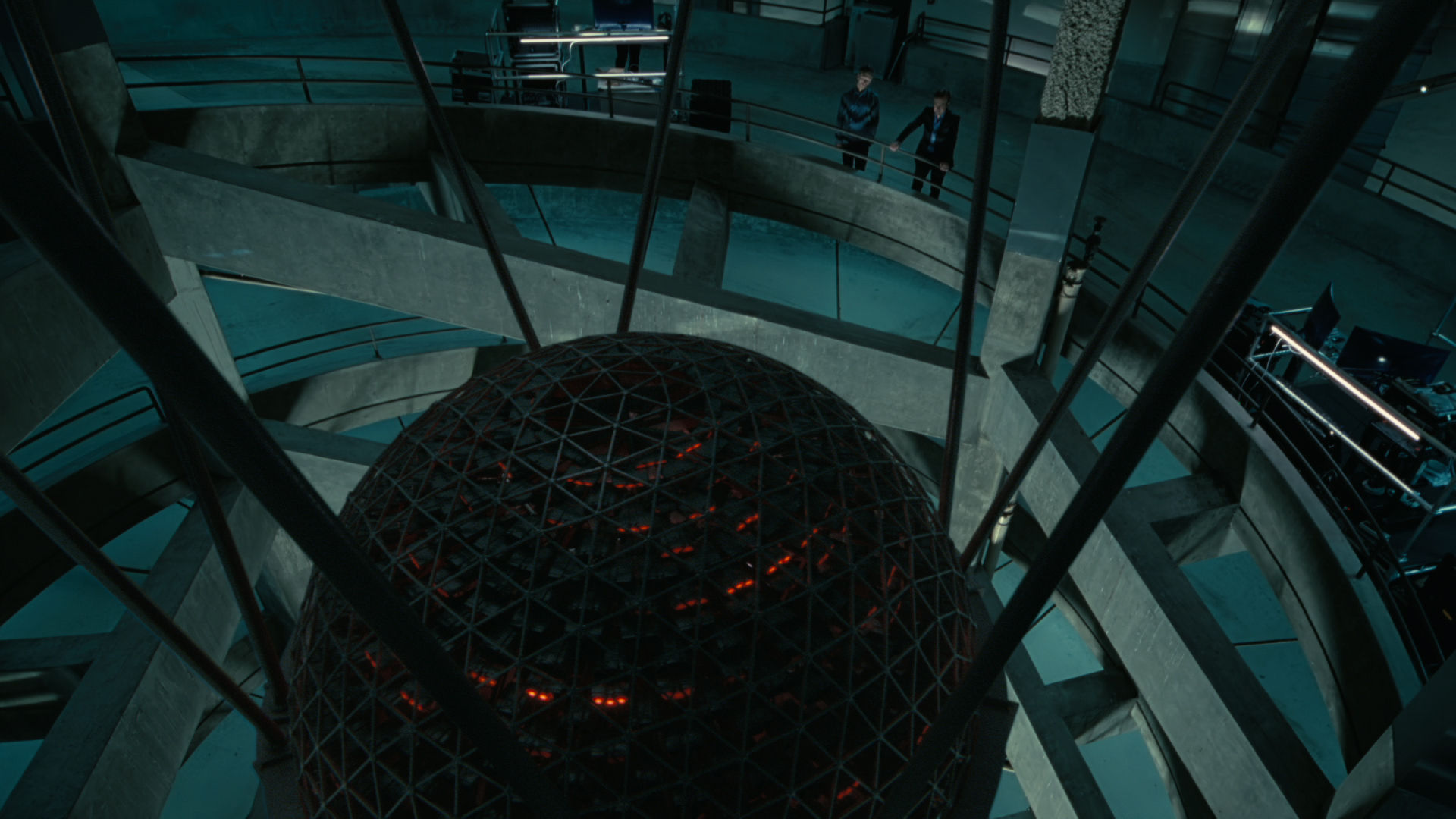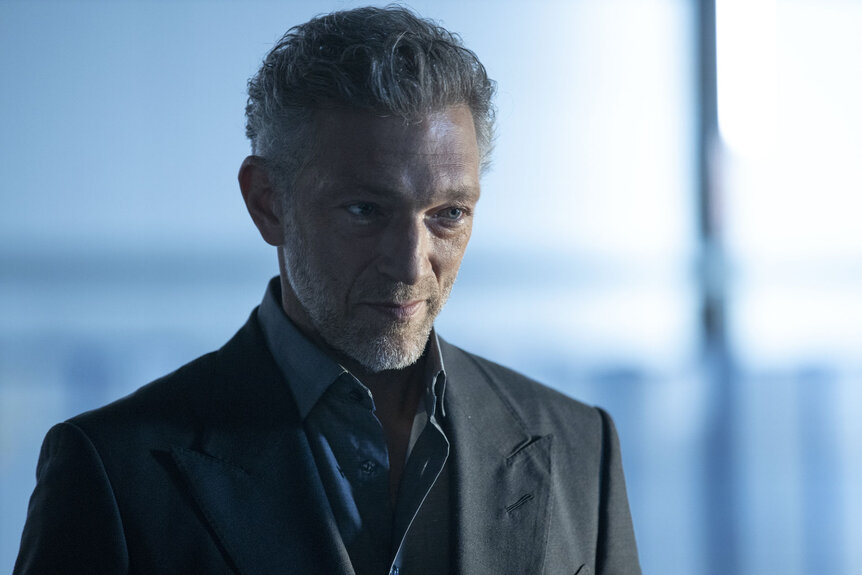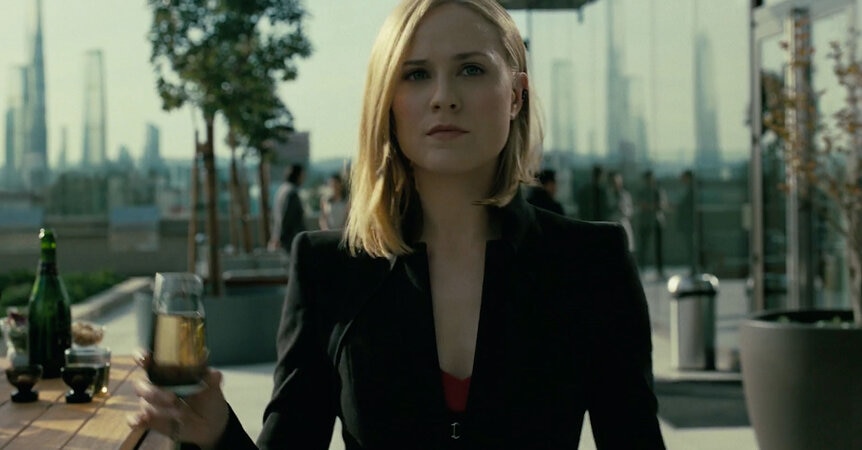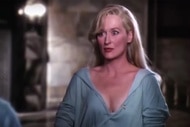Create a free profile to get unlimited access to exclusive videos, sweepstakes, and more!
How Westworld’s Biblical references might tell us how Season 3 ends

On the surface, HBO's Westworld is part futuristic vision and part technocratic nightmare, a story that shows us both the best and worst of what technology has given mankind the power to do. From artificial intelligence and sentient robots to rigid class structures fueled by algorithmic predictions and machine learning, this is a show that is fascinated by the changing ways technology and humanity intersect, for both good and ill. Yet, despite its fixation on the future, the main questions that drive Westworld are almost as old as time — and the Old Testament.
This is a show in which robots can think for themselves and cars can fly, yet its primary story still focuses on age-old philosophical debates regarding identity, free will, morality, and redemption. Who gets to decide who we are? How culpable are we in the choices we make? What does it mean to be truly free?
Time and time again, Westworld returns to primary themes that are much more Biblical than anything seen on Black Mirror. The concept of resurrection is intrinsic to the show, and there are plenty of smaller, seemingly throwaway allusions to religion, like the Judas Steer back in Season 1. That connection is stronger than ever before in Season 3. From opening credits that repeatedly call to mind Michelangelo's "The Creation of Adam" to a premiere episode named after a Catholic Lenten hymn ("Parce Domine"), this season tells us from the very start that Biblical themes will be more relevant than ever.
And that’s before we even get to the series of all-knowing supercomputers named after the various Kings of Israel.
The central conflict of Season 3 is between host Dolores, newly escaped into a 2058 version of our world, and the mysterious Serac, the enigmatic billionaire behind data corporation Incite. He is the primary mind behind Rehoboam, an AI that powers (and controls) society through its various algorithms. Dolores is interested in this system for reasons that haven’t been fully explained yet — though one has to assume that releasing humanity’s stolen data back to them, Robin Hood-style, is neither her sole mission nor merely done out of the kindness of her heart. But Rehoboam’s existence does offer us some important clues about how Season 3's endgame might play out.
That the system itself is named after a notable figure from the Bible might be a coincidence on any other show. But, this is Westworld, where nothing is a coincidence.
The "real" Rehoboam was an Old Testament king, who appears in the books 1 Kings and 2 Chronicles. The son of King Solomon and a grandson of King David, Rehoboam is generally remembered as the last ruler of a unified Israel, the man who oversaw the dissolution of his father’s empire in rebellion and strife. Where Solomon was renowned for his wisdom and desire for justice, Rehoboam was a man who worked his people harder than ever before and squandered his father’s wealth, just because he could. His actions directly led to the rebellion that split the tribes of Judah and Israel in two, and his ultimate legacy is the cleaving of a people.
The Incite system bears more than passing familiarity with this Biblical family tree. In fact, it mirrors it rather closely. Serac and his brother went through at least three previous builds of the program before Rehoboam was created — known, in order, as Saul, David, and Solomon, respectively. Each successive evolution has changed the way the system works, expanded its abilities, and made it more and more godlike in its ability to predict the future.
Westworld hasn't told us specifics about the Solomon build, merely implied it was the first truly stable version of the AI, one that began making order out of the chaos that mankind had plunged the world into. After the nuclear destruction of Paris and who knows what other chaos and terror, the order and sense brought about by Solomon would have likely been a balm for the world at large.
But where Solomon asked God for wisdom in the Bible, it appears that the people behind Rehoboam are a lot more interested in power. This version of the system has gone an order of magnitude further than its predecessor, using the data at its disposal to plot out which humans are more likely to have lives of use and promise. Its algorithm now determines everything from someone’s job prospects to whether they're "approved" to have children, and structures their lives accordingly. It literally writes out everyone's future as though it is an actual god, and with increasingly little attention paid to whether the people involved are happy about their lots.
In the Old Testament, the rebellion of the 10 tribes of Israel was led by a man named Jeroboam, a former slave who once served King Solomon. It's difficult to know whether Dolores is meant to serve as a direct stand-in for this figure in Westworld’s version of the story, but her ability to command a cult of personality is eerily similar in many ways. (Not to mention the vaguely doomed air surrounding her host kind this season feels largely of a piece with that which allegedly followed the House of Jeroboam.) And since these Biblical themes have resonated throughout Season 3 thus far, it seems likely that they could also light a path to how this story might end.
The most obvious possibility is that Westworld concludes its season — and possibly its run entirely, if this continues into the newly announced Season 4 — with a permanent division between humans and hosts. After the united monarchy dissolved, Rehoboam remained the King of Judah, while Jeroboam became King of Israel. And, for a time, the two were able to coexist. Sort of. It's... complicated. Though Rehoboam didn't ever really manage to mount a serious attempt to take back the northern kingdom (his son led the only major battle against Jeroboam) the two countries are nevertheless described as constantly at odds with one another.
A similarly divided ending for Westworld does make sense. After all, it's difficult to imagine a world where Dolores and Maeve live in harmony with humans, and even the most cordial of sunderings is likely to provoke some level of conflict.
Might Dolores relocate all the hosts to the Valley Beyond, including whatever consciousnesses may still be left in the parks or stored on Serac's virtual server? This is, after all, a version of the happy ending that Serac promised Maeve for doing his dirty work, so theoretically we know it's possible: A place for hosts to live and thrive forever, separate and apart from the humans who have controlled, abused, and destroyed them.
Yet, Dolores herself has expressed resentment at being made in the image of mankind, but still denied access to the full human experience. Now that she’s free in the real world, with a stolen fortune and a brewing human rebellion brewing at her back, she has a unique opportunity to create change. When the Bible's Rehoboam attempted to quell a rebellion amongst his people, he only drove them more firmly to his rival. The attempts of the virtual one to reassert its plan on society seems likely to do the same. If there were ever a time for Dolores and friends to claim a space for themselves in the real world, it’s now. (Perhaps, say, in the ruins of the Delos parks that will very clearly have to be abandoned after all this? A new Eden for them to rebuild?)
It seems unlikely that Westworld Season 3 will conclude with Dolores and Serac shaking hands and vowing that their species can learn to get along. But how will things end between them? Could the hosts find peace in virtual heaven? Are humans destined to make their own Earth a Hell? Or is an eternal conflict between these sides inevitable, as long as both exist?
















